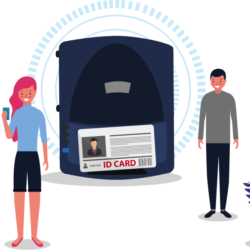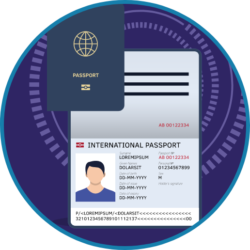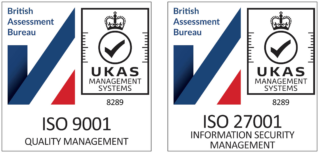Is the future a digital right to work?

Could a digital Right to Work (RtW) solution make RtW checks faster, more convenient and more secure? In an article in HR Director (published June 2021), I looked at Right to Work (RtW) checks and considered this question. Here are some of my thoughts…
Why do we need a digital Right to Work?
Under immigration law, businesses are obliged to ensure that all employees have a right to work in the UK. Traditionally, government guidelines have recommended that employers ask applicants to show physical identity documentation to prove their Right to Work (RtW) identity – and employers have built this into their application processes. But the world is becoming increasingly digital. We shop on-line, we work remotely, and we use our phones to pay for goods in shops. As a result, we increasingly expect transactions to be digital – and instantaneous.
This raises the question – should employees have to go through the same process of presenting physical documents every time they change jobs? Or could some sort of digital RtW identity, based on an original single set of rigorous and trusted document checks, be the future?
Is a digital Right to Work check feasible?
It’s likely that a robust RtW check will always need to be based primarily on physical documents – but that doesn’t mean that those documents need to be seen each time an applicant demonstrates his or her right to work in the UK. The temporary relaxation in government guidelines (brought in to allow for social distancing measures and the increase in remote recruitment due to Covid-19) has clearly shown that RtW checks can be done safely without in-person checks.
Our own statistics showed no reduction in the detection of identity fraud during the period of remote recruitment – proving that employees can share their documents remotely without increased risk of fraud. Evidence from the Home Office’s on-line Biometric Residence Permit checking service also clearly shows that a digital identity can speed up RtW checks.
What are the implications of a digital RtW identity for HR teams?
A digital RtW identity could provide multiple benefits for your HR team.
Convenience
The need to present and check physical documents adds extra complexity and time to an already complex application process. A digital RtW identity could be shared instantly – either remotely, or in person, simplifying the process, and making your team more productive.
A RtW identity would still need to be based on physical documents – but the advantage is that, once a digital RtW identity is created, it can be used multiple times. If an expiry date was built into it, it could be used for as long as it was valid. This would dramatically speed up the identity checking process – helping your team to onboard new recruits more quickly.
Security
Once a digital RtW identity is created, the applicant can store it securely on their phone – avoiding the need to send documents by post or store sensitive data in the cloud. And once shared, the employer has a clear, digital record that they have seen proof of RtW identity.
It may also provide some challenges too:
Governance
A fully re-usable digital RtW identity is not something that can happen overnight. In the first place, there would need to be some sort of agreed governance: the government would need to understand the technology involved and provide guidance for its use. There would also need to be trust between all parties – the applicant, the employer, and the government. That trust would require agreement as to who could create digital RtW identities, and what standards they would need to adhere to.
Technology
There is also the issue of creating the right technology to store and share a digital RtW safely. The best approach is probably to start with a simple RtW digital identity token. In the future employers may want to add functionality – such as storing qualifications and DBS checks – but to attempt that now would overcomplicate something that is potentially quite achievable.
Accessibility
A technological solution might exclude part of the workforce – and some people may simply be uncomfortable with the idea of storing their identity digitally. Just as we are always likely to need physical currency, we will always need to give people the option of proving their RtW identity through physical documentation.
Conclusion
With the increasing trend towards digitisation, both in our working and private lives, digital RtW identities are likely to become commonplace in the future. For HR teams, this will mean a simpler, faster and more robust RtW checking process. We already know that digital RtWs are feasible and can be conducted without an increased risk of fraud – as our evidence has shown. But like any process of digital transformation, the move to a digital RtW will (and should) be gradual and incremental. All parties – including employees, HR teams, identity providers and the government – need to be part of the process.
*First published in the HRDIRECTOR, June 2021. Reproduced with permission.
Read the original article here.
Want to find out more?
If you’d like to discuss how our services could support you, please get in touch. We’d be happy to arrange an online demo.
Sign up to receive updates
Receive notifications from TrustID direct to your inbox. Simply fill out your email address in the form below.
Want to find out more?
We’d be really happy to chat through your requirements and offer advice on the best service for your business.
Tel: 0118 466 0822 or email us.
Request a callback


